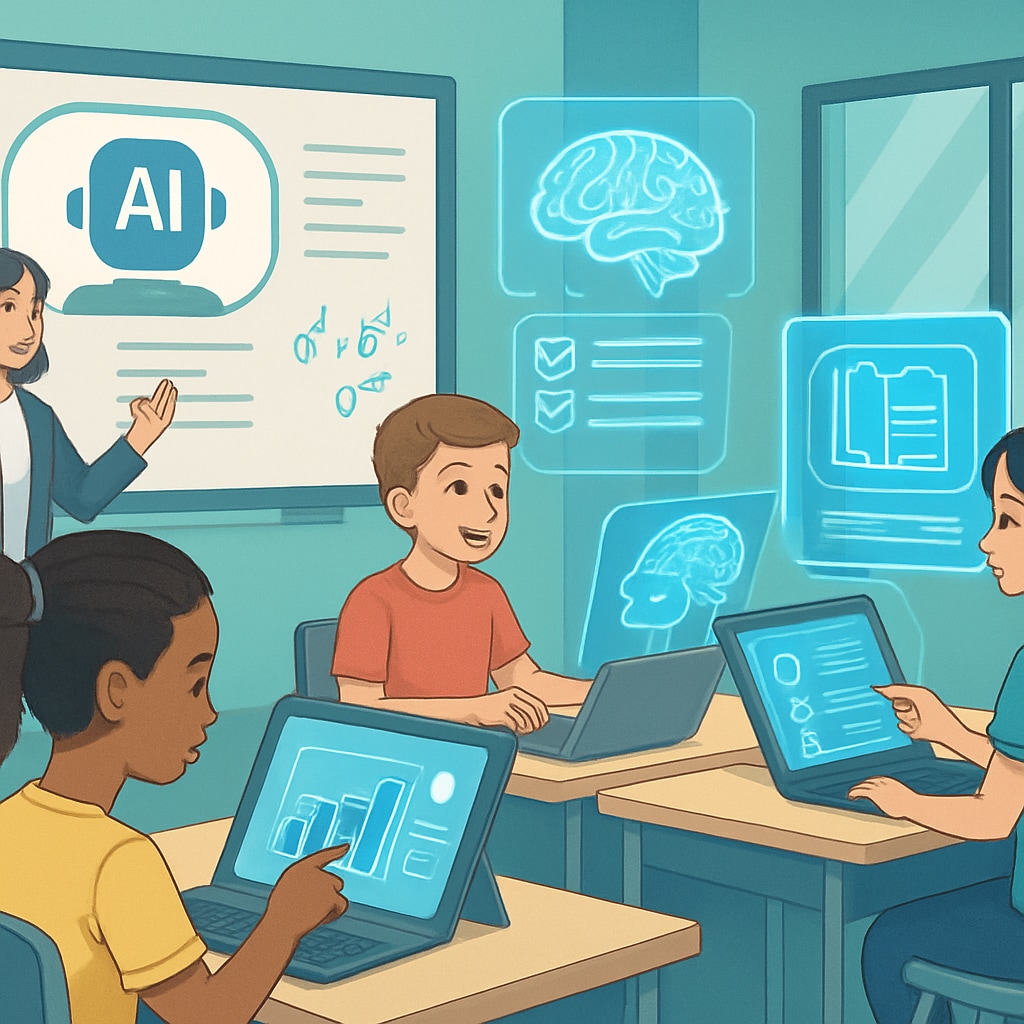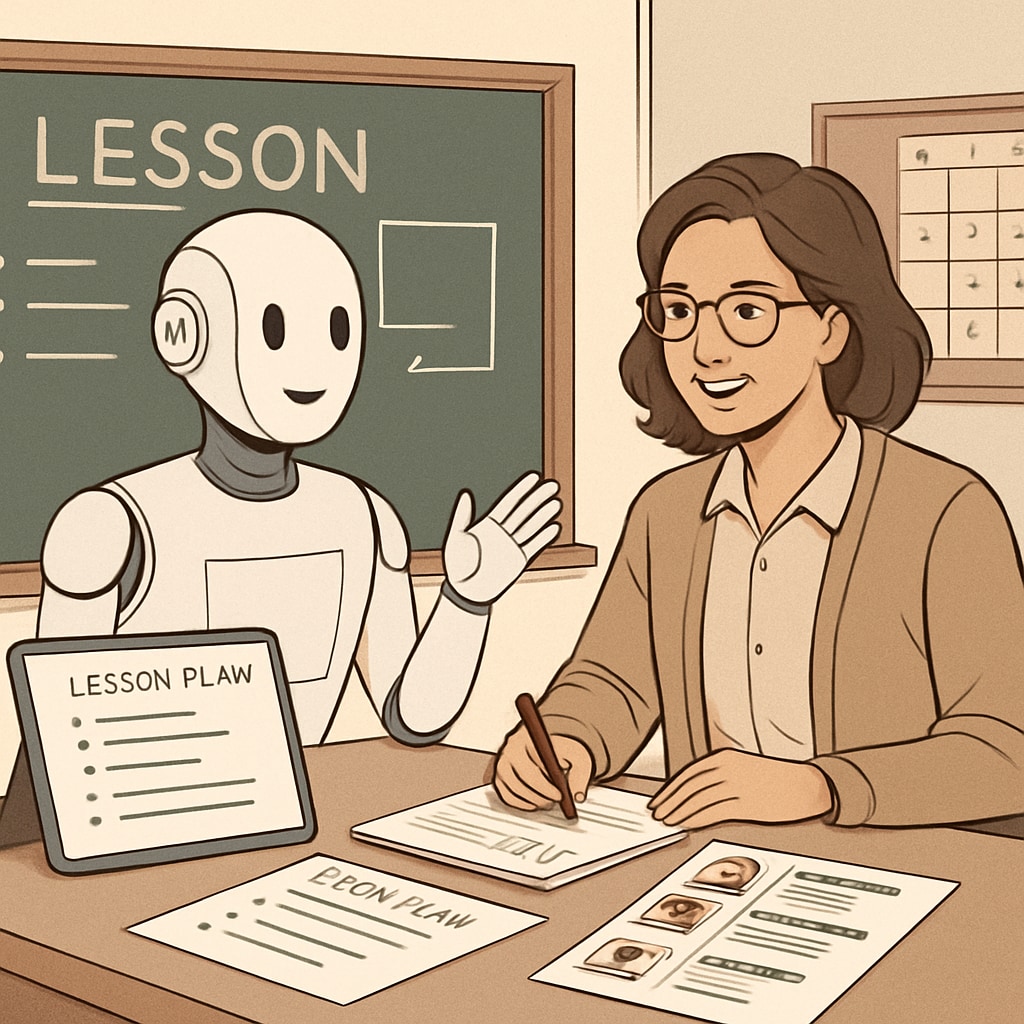Artificial intelligence (AI) is becoming a cornerstone of innovation in schools, profoundly impacting K12 education systems. Over the next 5–10 years, AI will bring transformative changes to school education, ranging from personalized learning experiences to reimagined teaching roles and revamped assessment methods. As a result, the future of education will not only be more adaptive but also more efficient, offering unparalleled opportunities to both students and educators.

Personalized Learning: The Heart of AI in Education
One of the most significant changes AI brings to K12 education is personalized learning. AI can analyze individual student performance, preferences, and learning styles to create tailored educational experiences. For example, platforms like adaptive learning software can adjust lesson difficulty in real-time based on a student’s progress, ensuring no one is left behind.
Additionally, AI can assist students with special needs by providing customized tools and learning aids, bridging educational gaps more effectively than traditional methods.
- Real-time feedback: AI systems can instantly identify areas of improvement.
- Customized pacing: Lessons can be slowed down or accelerated based on individual needs.
- Enhanced engagement: Gamified and interactive learning powered by AI keeps students motivated.
As a result, personalized learning empowers students while reducing the one-size-fits-all limitations of traditional education systems.
Redefining the Role of Teachers
AI’s integration into classrooms will not replace teachers but redefine their roles. With AI handling repetitive tasks such as grading and attendance tracking, educators can focus on fostering creativity, critical thinking, and emotional intelligence in their students. Teachers can also use AI insights to better understand student needs, enabling more effective lesson planning.
Moreover, AI-powered tools like virtual assistants can act as co-teachers, answering routine questions or guiding students through complex problems. This collaboration between technology and human educators will create a more dynamic and supportive learning environment.

Transforming Assessment and Feedback Mechanisms
Traditional assessment methods often struggle to capture the full scope of a student’s abilities. AI offers a solution by analyzing not just test scores but also behavioral patterns, creativity, and collaboration skills. This holistic approach ensures a more comprehensive evaluation of student performance.
AI can also automate grading processes, reducing biases and ensuring consistency across evaluations. Furthermore, real-time analytics enable educators to identify learning gaps early and intervene promptly.
For example:
- Adaptive testing adjusts question difficulty based on student responses.
- Behavioral analysis highlights areas needing improvement beyond academics.
- Instant feedback allows students to correct mistakes on the spot.
These advancements will make assessments more dynamic, fair, and aligned with 21st-century skills.
Challenges and Ethical Considerations
While the benefits of AI in K12 education are undeniable, they come with challenges and ethical concerns. Data privacy is a major issue, as AI systems require access to sensitive student information. Ensuring this data is protected and used responsibly is critical.
In addition, there is a risk of over-reliance on AI, which could undermine human interaction and creativity in education. Educators must strike a balance between leveraging AI and maintaining the human touch that is essential for holistic development.
Finally, training teachers to use AI tools effectively is another challenge. Schools will need to invest in professional development programs to ensure educators are equipped to harness AI’s potential.
Embracing the Future of Education
To fully embrace the possibilities of AI, educators, policymakers, and technology developers must collaborate. Schools should prioritize ethical AI implementation, invest in training programs, and ensure equitable access to AI-driven tools for all students.
By embracing this transformation, the education system can create a future where learning is more personalized, inclusive, and forward-thinking.
As we stand on the cusp of this educational revolution, the integration of artificial intelligence into K12 education promises to reshape the way we teach and learn, paving the way for a smarter, more adaptive future.
Readability guidance: The article uses short paragraphs and clear headings to enhance readability. Lists are included to summarize key points. Active voice is prioritized, and overused technical jargon is avoided to ensure accessibility for a broader audience.


